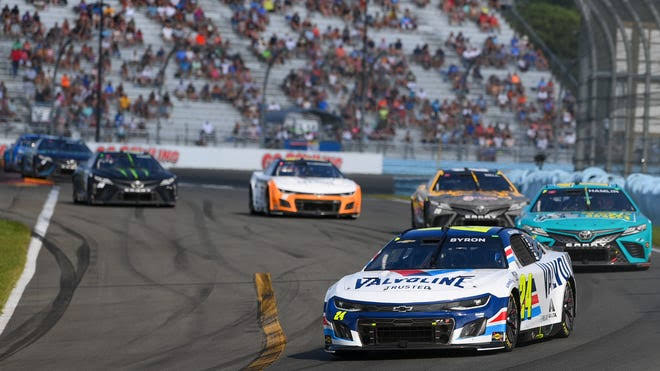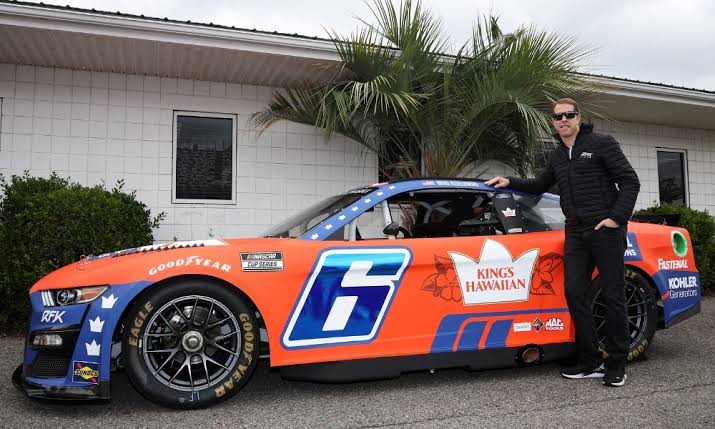Talladega’s NASCAR playoffs bring more than intense racing this year—legal challenges and a new aero package add to the drama. In this post, we’ll explore how NASCAR’s response to safety concerns and the looming lawsuit could reshape the race and the sport itself. This isn’t just about speed; it’s about survival.
As NASCAR rolls into Talladega Superspeedway for another playoff weekend, the excitement of the race is tempered by a brewing legal battle that could reshape the sport. In the midst of the playoff action, where six races remain and drivers are pushing to secure their spots, two teams—23XI Racing and Front Row Motorsports—are fighting off-track. On Wednesday, the Michael Jordan-owned 23XI Racing and Front Row Motorsports filed an antitrust lawsuit against NASCAR over its controversial charter system, making the legal case one of the most talked-about issues as the race approaches.
It’s no coincidence that Talladega serves as the backdrop for this dispute. Back in 1969, this track was the site of one of NASCAR’s earliest driver standoffs. The Professional Driver Association (PDA), led by Richard Petty, boycotted Talladega’s debut race, calling the track unsafe for competition. When NASCAR founder Bill France refused to postpone the race, 36 drivers sat out in protest, but the race went on without them. Over five decades later, a new challenge to NASCAR’s authority has arisen, again in Talladega, as two teams take on the organization in a legal showdown.
At the heart of the lawsuit is NASCAR’s charter system, which controls team ownership and revenue sharing. Last month, just 48 hours before the playoff opener, NASCAR presented teams with a “take-it-or-leave-it” agreement for the new charter model. While 13 teams reluctantly signed the more than 100-page agreement, 23XI Racing and Front Row Motorsports refused, claiming the system is anti-competitive. Team owner Richard Childress shared that his team, Richard Childress Racing, had little choice but to sign the agreement due to looming threats of losing their charter.
For drivers like Denny Hamlin, co-owner of 23XI Racing, the lawsuit isn’t a distraction but rather fuel for his competitive fire. Hamlin, a three-time Daytona 500 winner and two-time Talladega victor, emphasized that this legal battle only strengthens his resolve to perform. Currently ranked fifth in the standings, Hamlin is focused on winning his first Cup Series championship while navigating the complex legal situation surrounding his team.
As the legal cloud hangs over the sport, the competition on the track remains fierce. Front Row Motorsports’ Michael McDowell, one of the plaintiffs in the lawsuit, won his fifth pole of the season at a superspeedway. Although McDowell isn’t in the playoffs, his speed at Talladega—clocking a lap at 183.063 mph—secured him the top starting spot, with Ford drivers Austin Cindric and Todd Gilliland following closely behind.
Meanwhile, Tyler Reddick, who won at Talladega in the spring, is struggling. As part of 23XI Racing, he finds himself below the playoff cutline and unsure of why his team has faltered during the first four playoff races. Despite these challenges, Reddick insists he isn’t worried about being scrutinized by NASCAR due to the lawsuit.
Adding to the tension, NASCAR has introduced a new aerodynamic change ahead of Sunday’s race to prevent cars from going airborne—a recurring safety issue that recently saw Josh Berry and Corey LaJoie flip their cars. These changes, designed to keep cars grounded at high speeds, are crucial at Talladega’s massive 2.66-mile oval with its 33-degree banking, where speed and safety concerns collide.
With legal battles brewing off-track and high-stakes competition on it, this year’s NASCAR playoff race at Talladega promises more than just a thrilling finish—it could set the stage for the future of the sport.




